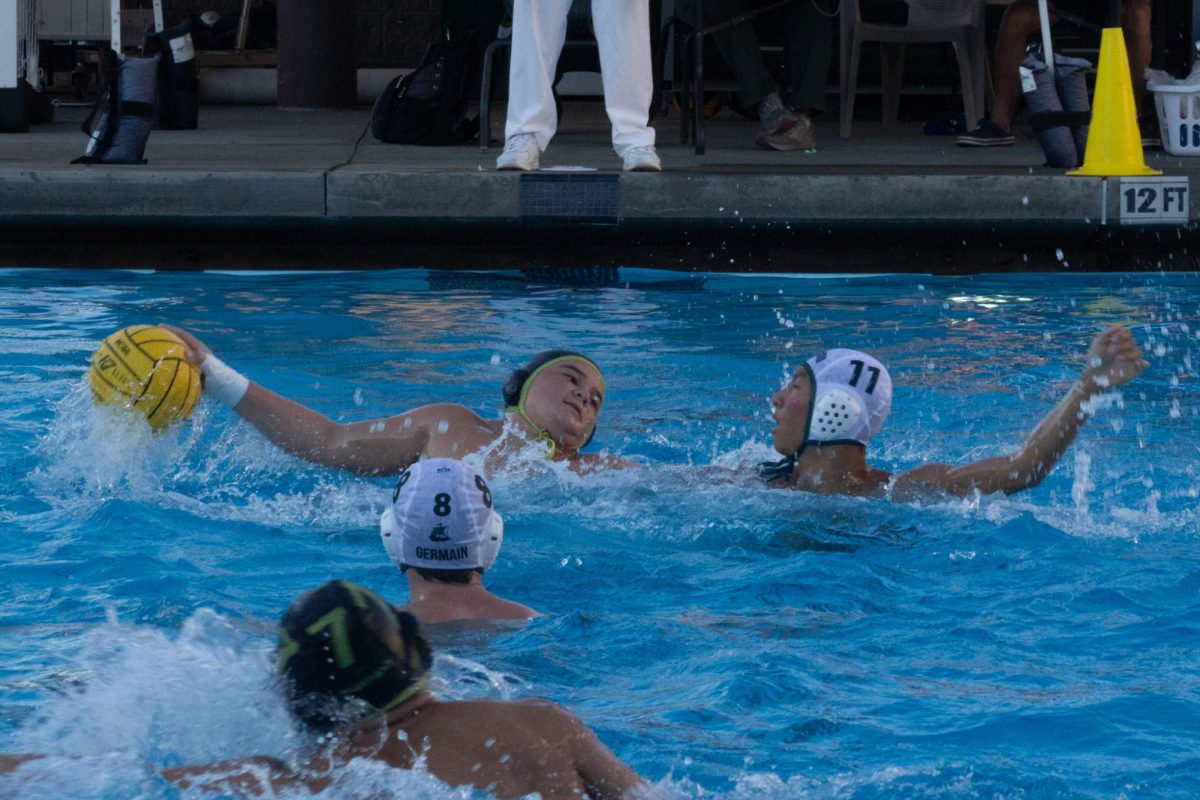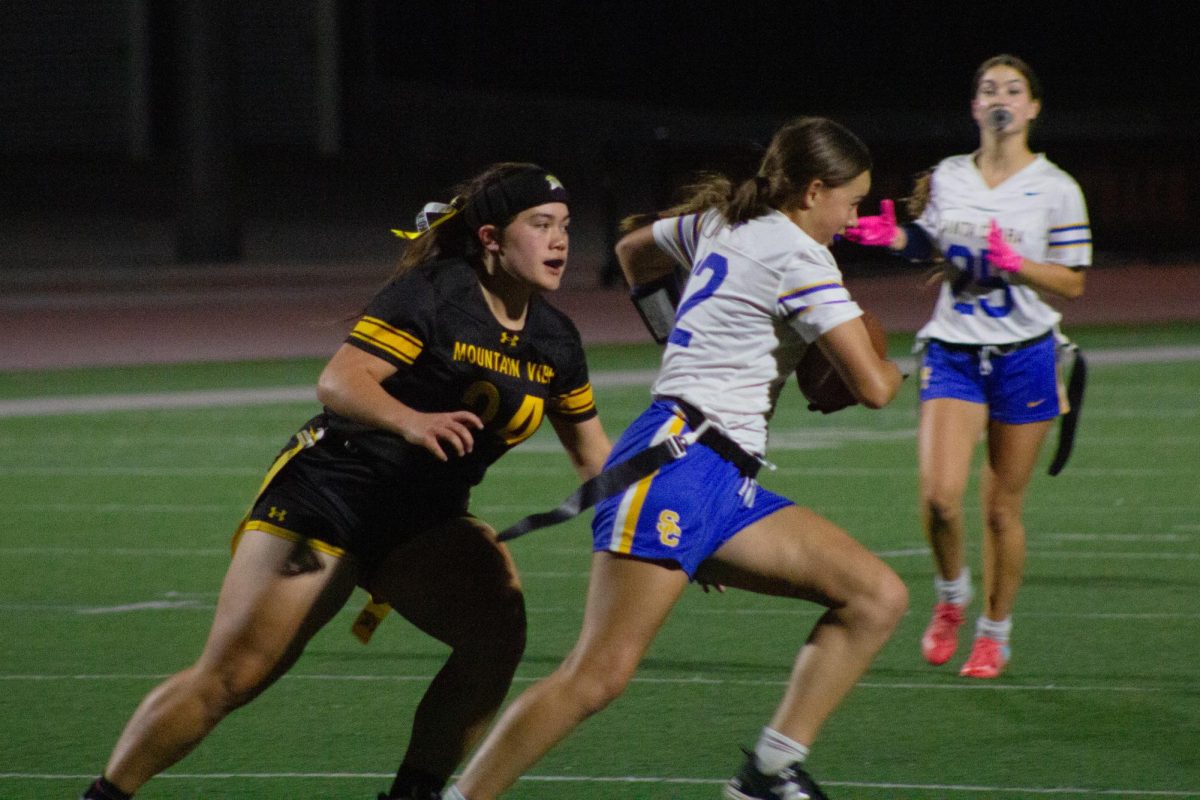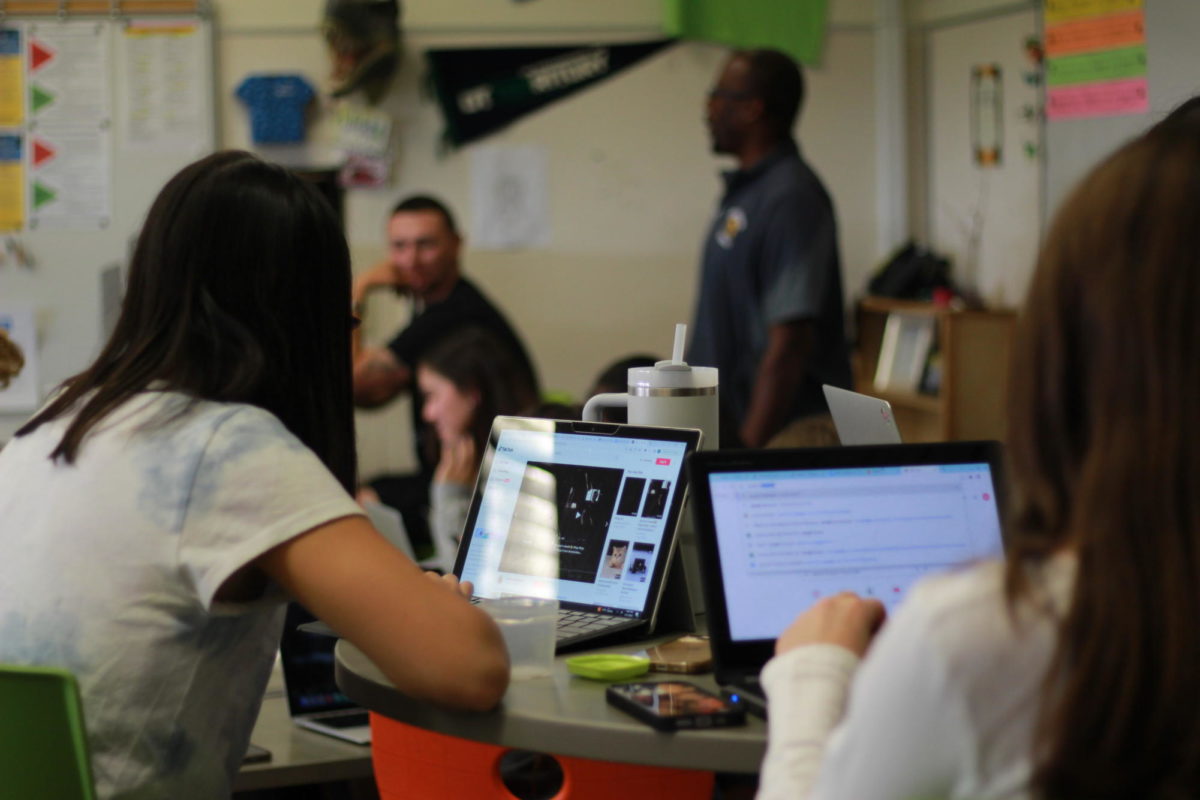ChatGPT has been unblocked from the school’s Wi-Fi, despite students not having access to the AI website during the 2022-2023 school year over concerns that the website was being used by students to cheat and plagiarize work.
In the past years, many classes have struggled with preventing students from abusing AI to pass work off as their own, however, principal Dr. Kip Glazer said she is a very strong supporter of incorporating AI into education.
“Banning everything has not really worked when it comes to technology,” Glazer’s LinkedIn profile said.
Not only is ChatGPT now available to students at school, some classes, like AP Gov, are open to students using the application in class to enhance learning and promote critical thinking.
“Soon after the first day of school, [Dr. Paul McHenry] told us all to open our computers, go to ChatGPT, and search up the ten main points of the Constitution, and half of them were incorrect,” an anonymous student said.
The message was that students are able to use ChatGPT whenever they like, but it’s not always a credible source. This becomes significant when it comes to using ChatGPT for writing, especially in AP classes, McHenry said.
“What Chat GPT produces, or what AI produces, doesn’t really hit all of the [criteria] that College Board is looking for, or what [AP teachers] are looking for,” McHenry said.
Despite the fact that AI might not be the best at producing great writing, teachers are still taking steps to prevent students from getting too comfortable with using these services.
“One of the things that we’re moving toward is more pencil and paper based stuff,” McHenry said.
Incorporating more on-paper assignments can be beneficial for in-class activities or assessments, but isn’t as convenient for long-term digital based assignments.
To promote academic integrity when students are required to complete digital assignments like research papers and essays, teachers may use websites like turnitin.com, which can detect the usage of AI or plagiarism in any given submission.
Some teachers take further measures to prevent cheating and require students to sign ‘artificial intelligence fair use’ waivers to ensure that they will not abuse the power of technology in their class and outline the consequences for students that do try to pass off AI generated writing as their own work.
“You can use it, it’s allowed, but you have to cite it,” an anonymous student said.
Even though some classes are starting to use ChatGPT as a tool for learning in the classroom, teachers suggest that AI is not a good source for accurate information. McHenry compared the use of AI to using Wikipedia as a source because both are known for being unreliable when used as such.
“I can get the basic foundation, but then from that, I need to use that basic foundation and go, ‘Okay, here I’ve got the basic outline, now I need to dig deeper on my own and to get further in depth on these topics,’” McHenry said.
In a way, ChatGPT is being utilized the same way as search engines, and some students don’t find it helpful to use it at all, “Google’s easier,” an anonymous student said.
Even when student’s try to pass an AI’s product as their own, the lack of real human tone can easily stand out to teachers.
“You can tell when it’s AI generated, often because the language is not natural language,” McHenry said. “They’re throwing in some key vocabulary that maybe one percent of our students would have been exposed to [and] be able to use reasonably well.”
While AI can replicate knowledge, students are still expected to apply that knowledge into their school work.
“It’s not going to replace the critical thinking and like all of the stuff that goes into building a quality response and demonstrating both competency and mastery of a subject,” McHenry said.
However, Dr. Glazer said that she sees the abuse of students using ChatGPT and other AI programs as stemming from a much deeper-rooted issue.
“Why do kids cheat? Because they’re stressed,” Glazer said in an interview with Politico. “They think this is a shortcut, and they don’t want to disappoint their teacher by not turning in their stuff. Or, they’re scared of their parents getting mad for getting a bad grade. Well, if an assignment invites these negative behaviors, perhaps we need to think about how we’re assessing our kids… we’re missing the boat.”

































